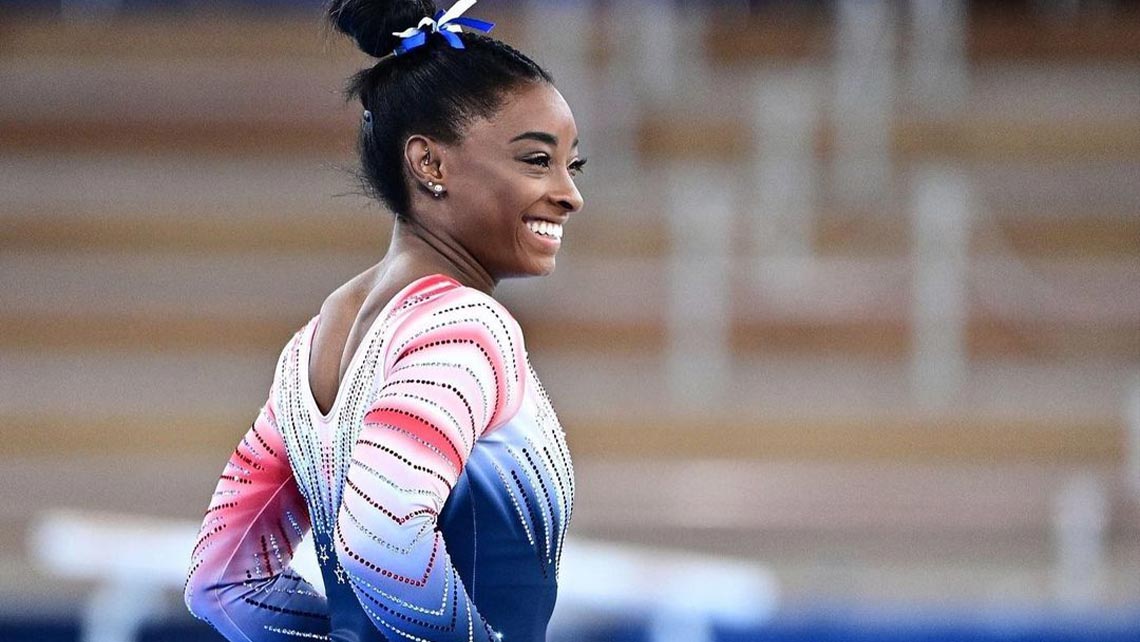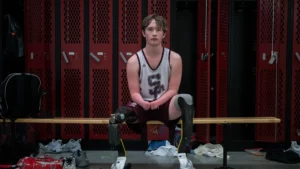After Simone Biles’ shocked the world by withdrawing from previous medal competitions at the Olympics to focus on her mental health, the gymnast returned on Tuesday winning a bronze medal on the balance beam.
Biles’ decision to pull out of the Olympics highlights the importance of self-care, setting boundaries, especially for the high achievers. It also sends a positive message to the girls around the world, as well as parents to teach their children to listen to themselves and advocate for their own needs.
Here are six lessons we can learn from the Olympian.
1) Understand your body and your mind
In an interview with The Washington Post, Tyish Hall Brown, a clinical psychologist in child and adolescent psychology and associate at Howard University explained that the first step for Biles was “identifying within herself where she was.” As an athlete who performs gymnastics while 10 feet in the air, Biles has developed an awareness of where her body is in space.
Katy Hurley, author of ‘No More Mean Girls,’ told The Washington Post that having a moment like this is amazing. “I am working with kids every day to help them take their own pulse and realize where they are.” Having the awareness of knowing how you feel physically and emotionally, as well as your capabilities – is a critical life skill.
2) Keeping boundaries
Sarah Vinson, a child and adult psychiatrist in Atlanta believes we need to “stop talking about resilience so much and start talking about boundaries.”
In the past, the U.S. Gymnastics’ culture focused on a win-at-all-costs, that enabled Larry Nassar to sexually abuse more than 150 gymnasts, including Biles. This environment brought more harm to the gymnasts, by not emphasizing personal boundaries, and also ended the career of Kerri Strug, back in 1996 when she attempted to do the vault.
According to RAINN, 1 in 6 women will survive an attempted, or completed rape in their lifetime, with those more at risk being between the ages of 12 and 34. By understanding the importance of boundaries it can offer the most powerful protection.
3) You’re the one who’s in charge
It’s important to understand that you are in charge of your own self. “You want to believe that people in charge will look out for you and protect you, but once you realize that’s not necessarily the case,” Vinson tells The Washington Post, “there’s an awareness that it’s really on you to do that.”
Unfortunately, Biles learned that lesson the hard way, after opening up about being abused by Nassar. She’s kept the pressure on USA Gymnastics to accept responsibility for what happened on their watch. This is an eye-opener for the rest of the world to know that the children won’t always be protected by the schools, programs, or organizations, and they should have the courage to stand up for themselves. Especially children of color.
“We see Simone Biles putting herself first. She showed other women and Black girls that you don’t have to be everyone’s everything,” says Hall Brown.
4) Don’t forget how important your mental and physical health are
Prior to the 2020 Olympics, another fellow Olympian had withdrawn from the French Open earlier this year. Naiomi Osaka chose to withdraw from the games, citing her mental health, showing how important it is to prioritize both mental and physical health. This led companies like Nike to feature ads about the importance of mental health.
“Simone Biles has encouraged people to talk about it, to not be embarrassed that you take medication and take care of yourself and treating mental health as health,” said Khadijah Booth Watkins, associate director for the Clay Center for Young Healthy Minds at Massachusetts General Hospital.
5) Having a supportive community
In addition to focusing on mental and physical health, it’s just as important to have a connection to others who are on the same boat as you. Those who you can talk to if it’s about things you won’t talk to your parents about.
“Talking with someone around you might be able to help you get through whatever you’re feeling is so important,” said Hall Brown.
When Biles decided to stop competing, “she didn’t walk away from her team,” she continued. “Some might say she let her team down, but after watching the interviews you see that her focus was not letting her team down. She didn’t want her mental health to get in the way of her team’s success.”
Instead, Biles encouraged her teammates telling them they had trained for this and were ready for it. The team showed support for one another, challenging themselves to go forth to win the silver medal, while Suni Lee won the gold individually.
6) Remember that greatness comes in all forms
Looking back at the 1994 Olympics, when Kerri Strug sacrificed everything for gold, it showed such power, hurting yourself for what you love and for pride is so important. However, in 2021, Biles did something very similar, but instead sacrificed gold for the sake of her heart, body, and mind, proving she is the Greatest of All Time.
“What Simone Biles did takes tremendous courage and responsibility,” said Booth Watkins. “She took a different path. It’s a comma, not a period, and it’s going to take her somewhere even better. We don’t want to run a race where we have no energy to finish. We stop to refuel so we can finish. That’s what makes her great and that is going to be what keeps her great.”





